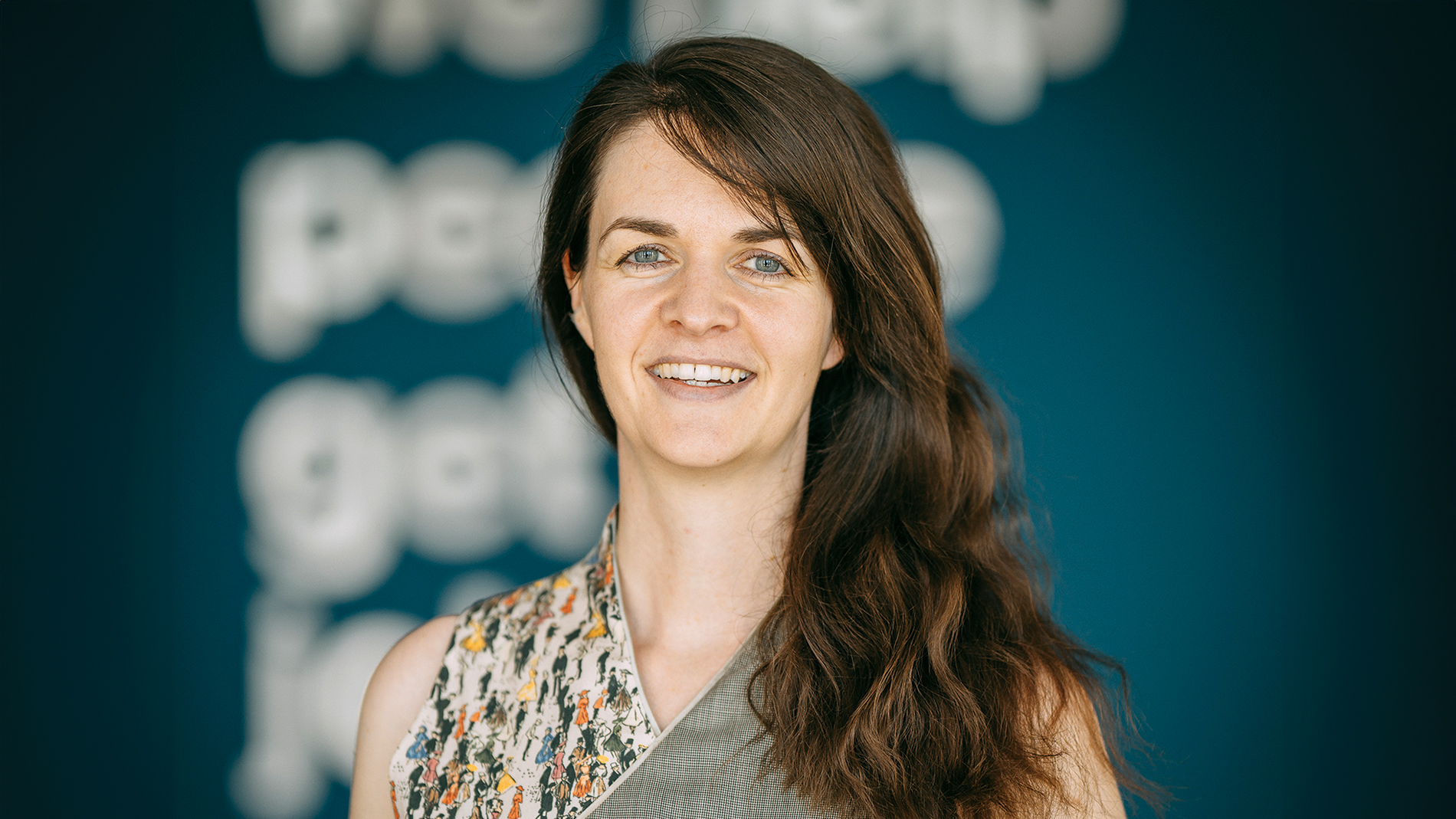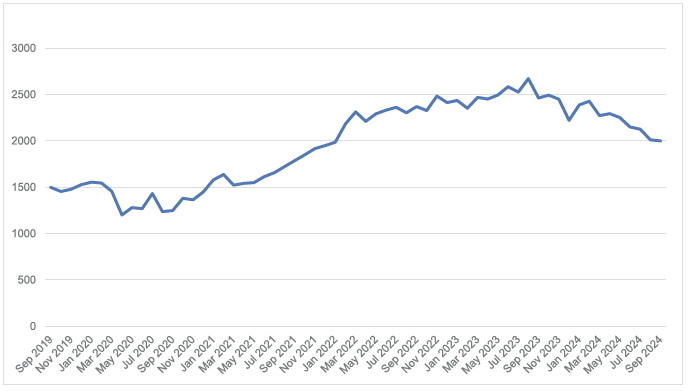Corinne Schindlbeck, senior editor at WEKA Fachmedien

As a Senior Economist at Indeed, Dr. Annina Hering regularly evaluates labour market data. The latest figures from Indeed show that vacancies for electrical engineers and software developers have fallen at an above-average rate, with electrical engineers even seeing a 20% drop compared to the previous year. This is a sharper decline than the German labor market average of -17 percent.
Hering notes that companies mainly save on high-paying, expensive positions. This also applies to software developers. But weren’t they a rare and desperately sought-after resource not so long ago? Yes, but after the pandemic, companies have been hiring on a large scale with a kind of catch-up effect, explains Hering. In view of the lack of orders, companies are now questioning which positions are really strategically necessary. “Over-hiring” is currently being attempted to be corrected, which is also leading to job cuts in some places. At first glance, this may seem incomprehensible in view of demographic change – after all, a good three million baby boomers will retire in 2022 and a further 16.5 million will retire by 2036, according to a population forecast by the German Economic Institute – but it is “an observable trend”, says Hering.
The recruitment consultancy Hays also has a good overview of the situation on the labor market thanks to regular analyses. Do electrical engineers need to worry about the decline in vacancies? No, says René Gruner. The job situation for electrical engineers is currently influenced by several factors.
Everything is being put to the test
Companies are currently more cautious when hiring new employees, as they have to pay more attention to costs due to a weakening economy. If the statements of the labor market institutes are to be believed, this attitude will continue in the coming months. Nevertheless, electrical engineers should not be discouraged. Despite the generally poor economic situation, some sectors are booming due to the energy transition and the pressure to invest more in electromobility. There are good job prospects here. In particular, the development and implementation of technologies for the use of renewable energies, the further development of electromobility and the digitalization of production processes offer concrete employment opportunities and job security for electrical engineers.

In diffcult times like the current one, recruiting tends to be much more strategic, explains Nadja Eder, Managing Director of SchuhEder Consulting. People are becoming more aware of who they really need and who they don’t, recruiters are “taking a more critical look again” and expectations are rising. “Job hopping”, for example, i. e. changing employers in quick succession, is not welcome, a “stable career“ is important, as are the right skills: flexibility, suitability and dealing with change management, a high affnity for IT and digitalization.
However, SchuhEder does not want to paint a gloomy picture of the engineering job market, quite the opposite. The vast majority of engineers have no problems. Even after redundancies, whether self-imposed or forced, they quickly find new employment. SchuhEder therefore describes the job market in the electronics industry as “extremely robust”. Short-time work here and there and the current reluctance to hire new staff would not change this.
Junior positions in particular are in short supply, explains the consultant, “almost everyone is trying to attract young talent”. However, companies also don’t want to lose competent senior experts and, according to Eder, are in a good position if they have the right skill set. “Termination agreements in recent weeks and months have tended to affect people in their 60s without the desired qualifications and skills,” explains the consultant.
While the focus shortly after Covid-19 was primarily on procurement and the supply chain, sales is now required to push the order situation in the difficult market environment. Sales engineers currently have good opportunities here.
René Gruner from Hays also sees opportunities. Yes, the recruitment requirements have indeed changed. In times of economic uncertainty, companies are placing greater emphasis on specific technical skills and soft skills, which are particularly relevant in the current situation. Knowledge in the areas of artificial intelligence, big data, cybersecurity and automation technology is particularly in demand.
In addition to technical skills, soft skills such as flexibility, problem-solving ability and, above all, the willingness to undergo continuous further training are becoming increasingly important. Companies are looking for candidates who not only have technical know-how, but are also able to adapt quickly to new challenges and develop innovative solutions. The ability to work in a team and strong communication skills are also important criteria, as many projects are carried out in interdisciplinary teams.
According to Gruner, another trend is the increasing importance of sustainability and environmental awareness. Companies are increasingly looking for engineers who have knowledge of sustainable technologies and processes and can contribute to achieving the company’s ecological goals.
More choice

Companies that can afford to recruit anti-cyclically can currently hope to fill their vacancies as required. Like Inpotron, a manufacturer of power supply units and power supply solutions, whose balance sheet was hit by the sluggish economy this year for the first time in many years. With one advantage: all vacant positions have been filled “very well” and the supply of well-qualified personnel has increased, says Inpotron owner Hermann Püthe. The current period is therefore also an opportunity for recruiting, “if you can afford it and want it”.
Incidentally, companies that can integrate English-speaking employees well have an ad- vantage, as there are more English-speaking profiles on the market, especially in the technical areas, says Nadja Eder. However, many companies are not yet ready.
The influence of artificial intelligence
Sandra Maile is CEO at Fortec, supplier of individual components and systems in the fields of display technology, embedded systems and power supplies. When staff turnover occurs, the company checks whether the vacant position can be developed further “through AI or the strategic direction of the company” and uses the opportunity to change things, she announced back in the summer. Does this mean that the substitutability of engineering work with AI is already playing a role?
Question to Dr. Annina Hering from Indeed. To a certain extent, she says. Recent studies by Indeed on AI have shown this. “We have investigated which skills generative artificial intelligence can take on today. And we can see that tasks involving mathematics and data in particular, as well as writing and reporting functions, can increasingly be performed by AI,” says Hering. It will have an impact on job profiles if AI agents increasingly take on routine tasks. Engineers would concentrate on their core tasks.
Nevertheless, AI will probably only slightly alleviate the shortage of engineers at best. The experts currently seem to agree on this. For example, Dr. Britta Matthes from the Institute for Employment Research (IAB), who analysed the substitutability of engineers for a VDE paper. “High substitutability potential does not mean that the professions will no longer exist in the future.” Rather, the aim is to make the work of engineers more effcient and free up time for more complex, creative tasks through automation. Matthes therefore gives the all-clear to those who are worried about AI: The use of AI requires the assessment and classification of engineers, their knowledge.
AI can only be used productively when it is combined with specialist knowledge. Matthes therefore does not believe that the demand for engineers in electrical engineering and information technology will decrease in view of the great potential for automation in engineering work. Instead, she even anticipates a “significant increase in demand”. This is because the combination of demographic change, which will see many engineers retire, and increasing digitalization will lead to growing demand.
However, this also means that the “skill set” for personal employability is becoming increasingly important – a hobbyhorse of Prof. Thorsten Weiss from Ravensburg-Weingarten University of Applied Sciences (RWU). Especially in view of the currently weakening job market. A degree alone is no longer enough to get your dream job effortlessly. “In my observation, generalists no longer have it so easy. Employers are currently looking specifically for suitable candidates for their specific tasks, as familiarization with complex topics is very time-consuming and expensive.”
Engineers can also take confidence from the non-cyclical factors. The slump does not change the structural shortage of skilled workers. The Bavarian Industry Association (vbw) is reporting insolvencies, short-time working and declining employment (and is therefore warning the negotiating partners against overambitious wage demands). However, measures to secure skilled workers are just as urgent. This is because the shortage of skilled workers and labor will remain a challenge in the medium and long term. The reason: an ageing society.

The latest figures from Indeed show that vacancies for electrical engineers and software developers have fallen at an above-average rate, with electrical engineers even seeing a 20% drop compared to the previous year.
INTERESTING TO KNOW
How much do you earn in power electronics?
SchuhEder Consulting is an official career partner of the PCIM and will be supporting the Career Area at the PCIM Expo next year. The team will be on site in person for discussions on Thursday, May 8, 2025. A panel discussion is also planned on the Technology Stage, which will focus on the latest developments in engineering salaries. To this end, SchuhEder Consulting is now collecting salary data that will be included in a report on the trade fair. Interested parties are invited to take part at www.schuh-eder.com/gehaltscheck/ and receive an individual evaluation and advice if required.
Would you rather be a doctor than an engineer?
Young people in Lower Saxony prefer to study human medicine and health sciences (up almost 28%) rather than engineering (down 7.7%). The number of prospective engineers at universities in Lower Saxony fell from around 53,000 in the 2014/15 winter semester to just under 49,000 recently – a drop of 8 percent. In mathematics and the natural sciences, the number fell from 24,000 to around 23,000 (minus 4 percent). In contrast, human medicine and health sciences experienced a boom (up 28% to more than 12,000 students) and the humanities also grew by 8% (to around 22,500 students).
Becoming AI-fit
In addition to traditional skills such as numerical and spatial thinking, technical understanding and electrophysical knowledge, engineers will also need to develop skills in dealing with AI applications in the future. For example, to make more precise forecasts for the utilization of energy grids, as Prof. Sebastian Lehnhoff, Professor of Energy Informatics at the University of Oldenburg, describes the use of AI in the smart grid in a recent VDE paper: “In IT, AI can be used in many fields of application for automation, optimization and decision support. These include the creation of precise forecasts for energy generation, consumption and market prices, predictive maintenance, automated algorithmic trading energy trading, grid management and control as well as applications in customer service and for product optimization.”
Continuously new jobs (not only) around the energy transition
Are there specific areas/profiles in which the demand for electrical engineers is stable or even growing? There is, says René Gruner from the recruitment consultancy Hays: “The demand for professional profiles is growing, provided that candidates have relevant experience in the following areas:
Renewable energies
Electromobility
Industry 4.0.
Automation technology
Smart grids
Medical technology
IoT


